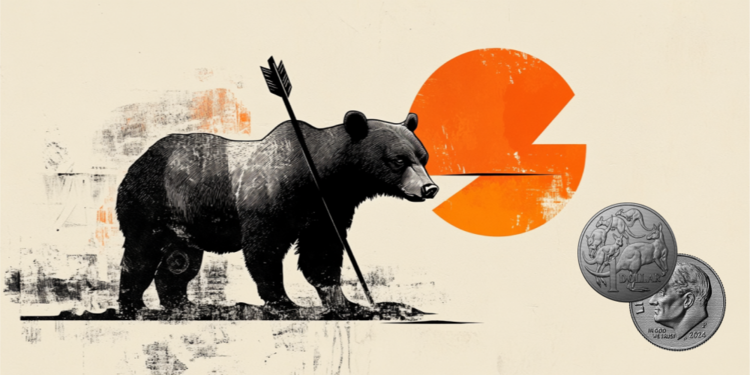With one month to go until the Unified National Competition (CNU), scheduled for August 18, the expectation of entering a public career increases among the more than 2 million applicants.
In 2024, in addition to the CNU, known as the “Enem of Competitions”, the traditional National High School Exam (Enem) and competitive entrance exams such as FUVEST will be held in the second semester.
A CNN spoke with experts in learning techniques, who give tips on learning methods.
Personalized study journey
There is agreement among experts that Each individual must discover what type of learning journey best suits their profile. .
“There is no ‘cake recipe’ that works for everyone, after all, each person develops a learning style. Personalized learning is interesting because it takes into account the preferences, abilities and pace of each individual,” says Débora Tavares, professor and master in literature.
Each individual has unique characteristics that can be exploited to optimize knowledge absorption and achieve exceptional results. Experts explain that it is a journey of self-discovery to identify your dominant learning style.
“It is important to observe how you retain information best, which form of communication holds your attention the most, or which you can communicate best. The most common styles are visual, auditory, reading/writing and kinesthetic . Each of them uses specific methods, depending on the proposal, the professional, and the student”, he adds.
Learning methods expert and academic researcher, Caio Rubin, exemplifies these styles.
“The visual style uses graphs and diagrams, while the auditory style is more suitable for those who learn through reading aloud and group discussions. Reading, on the other hand, is more suitable for those who deal better with notes and index cards, while the kinesthetic method works with practical activities such as simulations”, points out Rubin.
Mind maps and the art of memorization
In a world of ever-expanding information, memorization becomes an essential skill for success in tests and competitions. However, traditional “rote learning” is not the best strategy .
“Memorizing is not the most efficient technique for long-term learning, as it is based on superficial memorization. This method has proven ineffective in retaining information that becomes knowledge,” Tavares analyzes.
The specialist explains that there is a process related to access to information, which occurs through understanding, learning, interpretation, and finally, the most solid ground, which would be knowledge itself.
The researcher emphasizes that knowledge itself is constantly changing in the face of technical and social transformations of individuals.
The concept and practice that addresses the dual relationship between student and study, such as mind maps, represent an excellent alternative, given that they organize and visualize information in a structured way, facilitating the understanding and retention of content.
“Using keywords and images to represent the content visually and in writing will help organize the information into a hierarchy of relationships, whether chronological, important, cohesion or coherence. Using different colors for different categories helps to systematize the study process with colors, symbols and references that make it easier to return to the topic,” explains Débora.
She points out that creating “narratives” when creating mind maps helps connect and cohesion keywords and images . Writing this “narrative” in text format increases comprehension to a new level.
Discipline, productivity and rest
The search for optimizing study time is constant. They explain that there is no ideal amount of hours, but that the criterion must be perceived by the student, analyzing their ability to retain information.
“An effective study usually involves 25 to 50 minute sessions followed by short 5 to 10 minute breaks . This also varies from reality, in which most students need to spend hours on books and experiments”, recalls Débora.
This period of study followed by short breaks is known as the Pomodoro technique. Ensuring that the day is focused and disciplined is what will really increase productivity in studies. To do this, they suggest some techniques.
“Techniques like Pomodoro can help manage study time productively, as well as organize the content to be studied in relation to the time required to dedicate it,” advises Caio, remembering that rest, as well as leisure, are essential to consolidate learning and avoid mental fatigue and stress.
Taking care of your mental health is essential for success in your studies . Exercise regularly, maintain a balanced diet, get a good night’s sleep and set aside time to relax and have fun. Experts say that the maxim always applies: healthy mind, healthy body.
Bet on technology to enhance your studies
In this context, technology becomes a powerful ally, capable of transforming the student’s journey, optimizing the learning process. But experts emphasize the importance of use available resources responsibly .
“Ethics, responsibility, intellectual honesty and a commitment to learning are needed, and not just a way of standardizing education and information worldwide based on the perception of artificial intelligence programmers, for example,” highlights Caio.
Among the infinite number of possible tools, some stand out for their ease of use, but mainly because they are accessible to all students.
“For managing materials, Google Classroom is very efficient. Notion is a powerful tool for creating notes and organizing notes. Visual presentations can be created using Canva, all of them for free,” advises the teacher.
They point out that in addition to prioritizing a specific technique, the student or researcher needs to test and choose something appropriate for their context, practices, and demands. This prevents the concern for the best technique from overriding the concern for the research or learning itself.
“Public exams and qualifying tests require dedication, discipline and, above all, persistence. Not getting discouraged by obstacles and learning from each failure are essential to staying focused on the final objective”, concludes Débora.
Source: CNN Brasil
I’m James Harper, a highly experienced and accomplished news writer for World Stock Market. I have been writing in the Politics section of the website for over five years, providing readers with up-to-date and insightful information about current events in politics. My work is widely read and respected by many industry professionals as well as laymen.







